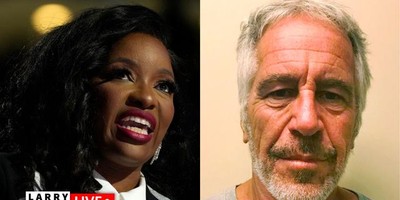The last few years, I have been repeatedly disappointed by the bickering and pettiness displayed by our legislators, political pundits, and candidates for office. I have longed for representatives who are informed and articulate, who habitually seek the best laws and results for the land. Unfortunately, the history I have reviewed recently suggests that we may be more like our forefathers than we would like to believe. Those who long nostalgically for more civil times should not read some of the pamphlets distributed during the election of 1800 when Jefferson defeated Adams! Neither should they watch the movie “Conspiracy” which discusses the way Washingtonians accused of working with John Wilkes Booth were unfairly stripped of their rights and executed. Although the political process was fraught with danger and contention, there were also many leaders who paid a real price for their convictions.
For example, Dr. Martin Luther King, Jr. has loomed larger than life in the hearts and minds of Americans since his assassination in 1968. The massive monument which now stands on the National Mall in Washington, DC is a physical manifestation of the spiritual giant he has been to so many of us over the past two generations. Today’s leaders can only hope to capture a fraction of the respect from his followers and fear from his opponents that Dr. King commanded during his lifetime. Yet this was never the life that he sought for himself. Indeed, if there is one lesson we can learn from this man today, it is that the best leaders are often reluctant to bear the burden of leadership, because they understand the cost is so high.
Those who have studied Dr. King’s life know that he came to a crossroads in his life in Montgomery, Alabama in 1956, after two years of pastoring Dexter Avenue Baptist Church. Before accepting that position, he had intended to pursue a quiet academic career filled with teaching, studying and writing. After moving to Alabama he was made head of the pastors’ association that led the famous bus boycotts and found that he and his family were facing growing harassment by local police. One day in 1956 he stopped what he was doing and prayed at his kitchen table, asking the Lord whether such activism was worth the risk to himself and his family. These are the words he heard in response: “Stand up for righteousness. Stand up for justice. Stand up for truth. And lo, I will be with you. Even until the end of the world.”
Recommended
All of the events that followed in his life—the ones that we remember—reflected his obedience to these words. How many of our political and community leaders today can say honestly that such obedience has been the driving force of their careers?
Those who worked with Dr. King on a daily basis remember more than the fiery speeches that captured a nation’s attention and stirred its moral conscience. They remember a soft spoken, thoughtful man who was keenly focused on the task at hand. They remember a man who worked late into the night and rose early; someone who came across as genuine and accessible to the people around him. Dr. King didn’t seek the spotlight as so many would-be celebrities do today. He was thrust into the spotlight by the demands of his times. He didn’t hunger for attention, but he used the attention directed at him to further the cause he fought for, not his career.
Think about King’s quality of leadership in light of the petty politics we observe today, where members of both parties are willing to sacrifice principles and progress to score cheap points with the special interest groups. While we can’t know for certain what Dr. King would have said about the economy, healthcare, taxes or Social Security, we can be confident he would not have switched positions on these issues for opportunistic reasons. He would likely have had some choice words for the numerous elected officials caught in ethics and corruption scandals over the past months and years as well.
With today’s emphasis on political correctness, it is easy to forget how often Dr. King spoke of “moral law,” “natural law,” or even “God’s law” in his writings and speeches. Would such a man have embraced the current wholesale removal of God from the public square by secularist totalitarians? I think not. Dr. King was radically different from leaders in either party today. He was committed to making things happen. His ideology was not self-centered or self-serving.
It is difficult for us to remember the raw physical courage it took during that era; members of the movement were not only being arrested and thrown in jail, but murdered on a regular basis. Most of us remember Medgar Evers and Dr. King, but how many remember Ben Chester White, Wharlest Jackson or Oneal Moore? We must pray that God will raise up a new generation of leaders who will have as much intellectual courage as our ancestors. We need innovators, businessmen, and problem solvers who will be willing to give their lives to the cause of restoring America to everything God has called it to be.

























Join the conversation as a VIP Member